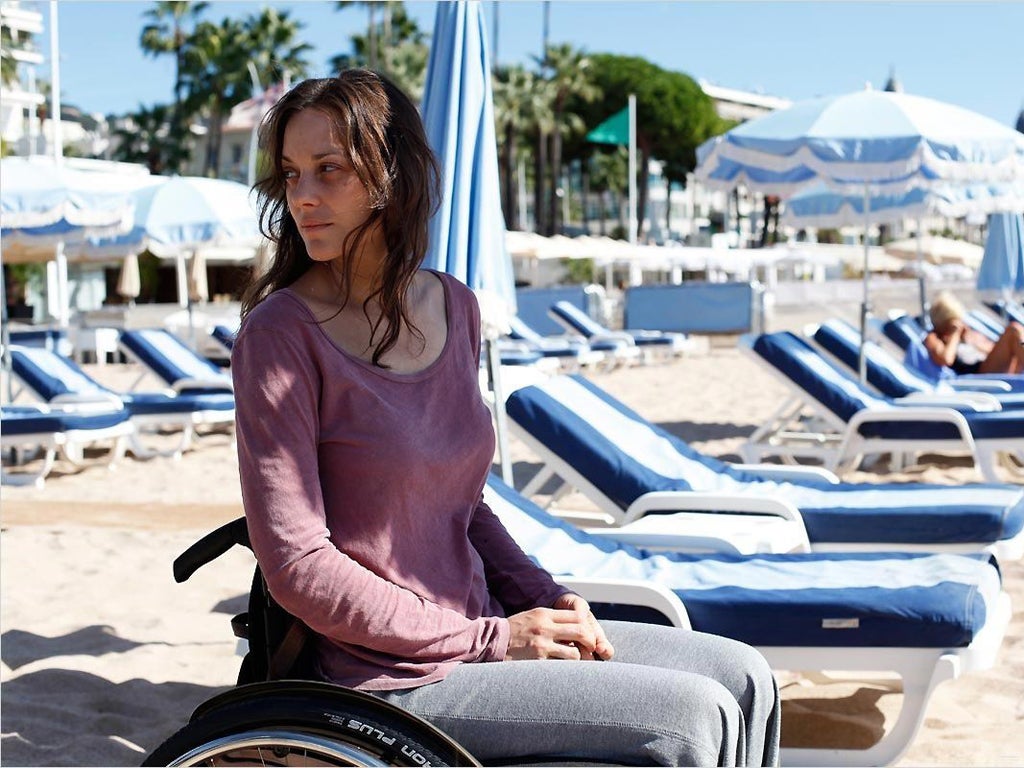Cannes round-up: Rust and Bone, Paradise: Love, After the Battle, Broken and Mekong Hotel

Your support helps us to tell the story
From reproductive rights to climate change to Big Tech, The Independent is on the ground when the story is developing. Whether it's investigating the financials of Elon Musk's pro-Trump PAC or producing our latest documentary, 'The A Word', which shines a light on the American women fighting for reproductive rights, we know how important it is to parse out the facts from the messaging.
At such a critical moment in US history, we need reporters on the ground. Your donation allows us to keep sending journalists to speak to both sides of the story.
The Independent is trusted by Americans across the entire political spectrum. And unlike many other quality news outlets, we choose not to lock Americans out of our reporting and analysis with paywalls. We believe quality journalism should be available to everyone, paid for by those who can afford it.
Your support makes all the difference.It's the rule in Cannes: arrive champing at the bit for drop-dead masterpieces, and be prepared to swallow a few disappointments before things really warm up.
As the competition kicks in, we've already had one film that had everyone on tenterhooks, and ended up polarising reactions. Jacques Audiard's prison drama A Prophet was the toast of Cannes 2009, so a lot was hanging on follow-up Rust and Bone. Indeed, it's had some of the press raving, while others tut-tutted about a major disappointment.
I'll be more cautious – serious flaws notwithstanding, this is a formidable film. Audiard's least thriller-like work to date, it's an essay in harsh realism, about the bond between a none-too-bright (and none-too-sympathetic) bruiser (Mathias Schoenaerts) and a marine-park trainer (Marion Cotillard) whose life is changed after a terrible accident. Perhaps because it's adapted from a set of short stories, the narrative rambles too much for comfort, and the drama loses credibility with a last-minute shock event unworthy of Audiard's usual subtlety. But few directors create complete worlds with the immersive coherence that Audiard achieves with this abrasive low-life panorama. And Cotillard's emotionally and physically demanding performance is so compelling that you rather wish Audiard had built the entire film around her character.
A definite disappointment is Paradise: Love, the first in a trilogy by Austrian social satirist Ulrich Seidl, whose films can usually be relied on to put the wind up audiences. This one followed a Viennese matron, on holiday in Kenya, whose search for love becomes an apprenticeship in sexual tourism. Fearlessly acted by Margarete Tiesel, Love makes its often cruel points about colonialism and exploitation quickly and effectively, then bangs them home at repetitive length.
The biggest missed opportunity in competition, however, was After the Battle, by Egypt's Yousry Nasrallah. Talk about hot off the press: the film addresses the aftermath of last year's anti-Mubarak uprising, through a Cairo-set romance of sorts between an intellectual woman of the media and a hunky working-class horse trainer. But a hyperbolic tone, some dire over-acting and much verbose political debate made this a leaden trudge, resembling a rendezvous between Ken Loach and Barbara Cartland on the banks of the Nile.
The first of a handful of British films here is Broken, the feature debut by theatre director Rufus Norris. It's a sombre coming-of-age story in the form of a suburban drama, with a careworn Tim Roth embroiled in a clash between neighbours triggered by the rage of a violent dad (Rory Kinnear). Norris directs confidently, if impersonally – the overall feel has over-familiar echoes of Andrea Arnold and Lynne Ramsay – and the film lends itself a little too easily to being fitted into the "Brit Miserabilism" bracket. There's also a distinct touch of classism in the treatment of Kinnear's daughters as, not to put too fine a point on it, red-headed prole spawn from hell. But the winning card is young Eloise Laurence, as the 11-year-old through whose eyes we see it all: she's characterful and boisterously eccentric (and with her chunky haircut, would be a shoo-in if they ever filmed the childhood of Iris Murdoch).
Meanwhile, the oddest thing I've seen is the hour-long Mekong Hotel, by Thailand's Apichatpong Weerasethakul, 2010 Palme d'Or winner with his Uncle Boonmee. A quizzical sidebar to his work, this is less a mini-feature than an extended art video, a beautifully shot sequence of conversations laced with acoustic guitar – and a most unexpected quotient of gore, with a couple of non-sequitur entrail-gobbling scenes.
Join our commenting forum
Join thought-provoking conversations, follow other Independent readers and see their replies
Comments